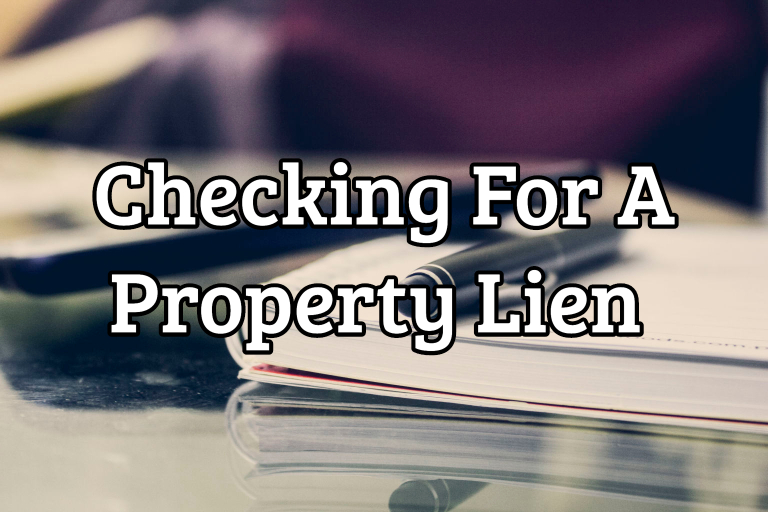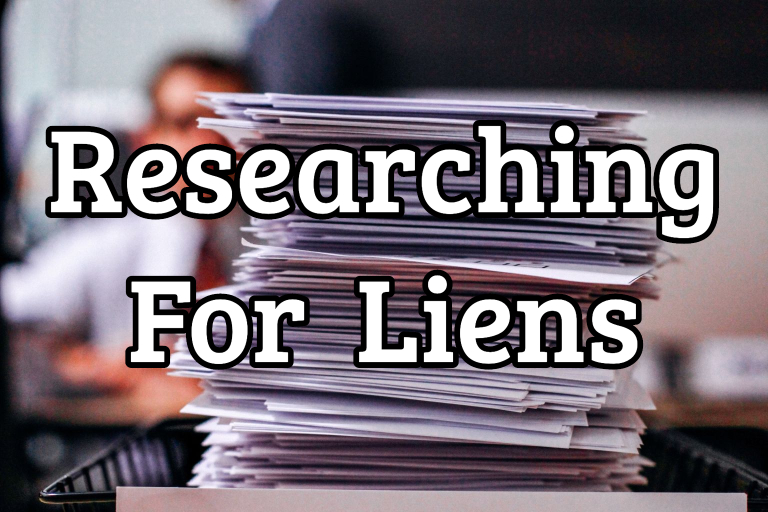HOW TO FIND OUT IF A PROPERTY HAS A LIEN

When looking to buy a home, especially off-market, you need to find out if a property has a lien. Finding one or more liens could make the difference between a good deal or a bad one.
A property will not close until or unless any and all liens against it are satisfied. In some cases, satisfying a lien means completely paying off an expensive bill. It could also mean additional legal fees. There are instances for which both a hefty price tag and legal fees are necessary. In addition, doing so could add weeks to the entire process, which could impact the ability to close promptly.
Any funds necessary to satisfy a lien on the property are in addition to a down payment. This includes legal fees, if applicable. For a buyer with all cash or planning on a larger down payment, this is of the utmost importance.
VOLUNTARY AND INVOLUNTARY LIENS
Potential buyers also need to understand both voluntary and involuntary liens. A “voluntary” lien is along the line of a primary and/or secondary mortgage. It is a loan taken out willingly by the current homeowner. In this instance, funds to pay off a voluntary lien are taken from agreed to funds at the closing.
However, an “involuntary” lien is when a creditor of the homeowner has a judgement against a balance owed. This type of lien of the property does not have to be directly associated with owning the home.
Examples of involuntary loans include:
- A divorce lien (in which one spouse is stopping the sale of property)
- IRS tax bill(s)
- A judgement lien from a creditor (such as credit card, student loan, etc.)
- Unpaid real estate taxes (such as property taxes, HOA fees)
- Mechanic’s Lien (such as contractors owed for work at subject property)
- Uniform Commercial Code 1 Lien
- Home Equity Line of Credit or Home Equity Loan Liens
To clarify, the homeowner is responsible for satisfying any and all liens in order for the property to close. However, suppose a potential seller agrees to a $100,000 sale price. At closing, it turns out there are $120,000 in outstanding liens. The property would not close until or unless the “additional” $20,000 is satisfied.
This is why it is of the utmost importance to find out if a property has a lien. Whether or not the property is located on Staten Island is of no consequence. A potential buyer needs to research regardless of the location of the subject property.

RESEARCHING FOR LIENS ON A PROPERTY
Any lien against a property must be documented in public records. In most cases, this research can be done online for the county in which the subject property is located. (This is for any county, New York or elsewhere.) This would be through the county Register of Deeds.* Any charges and the amount of specific information available may vary from county to county.
You can also research in person at the county register of deeds or assessor’s office within the county of the subject property.
Another way to discover if a property has a lien is to hire a title company. When there is a mortgage on a property, a title search will make sure there are no outstanding liens. A lender is highly unlikely to provide any type of financing when there is a lien on the property.
If considering the purchase of a bank owned property or by short sale, there is another source to consider. The attorney representing the bank (source of sale) should be able to provide information about any liens.
Documentation of any property liens which have been removed must include a notarized “Lien Release” from the county. Until or unless this is in evidence, a lien is not considered satisfied. This is the case even when there has been an attorney negotiated settlement.
Consequently, the important consideration is that any and all liens have been satisfied. If still in progress, the potential buyer should find and consider the estimated length of time. A lien on the property which could take months to satisfy could impact the ability to close. As a result, it could impact the decision to make the purchase.
It is not whether you find a lien on the property. You need to make sure there are not any that are outstanding and could delay or prevent a closing.
